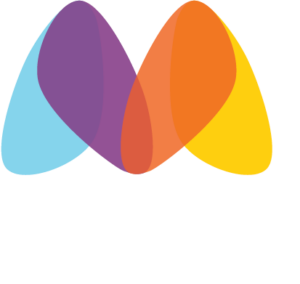What is the Memory Cafe Alliance?

The Memory Cafe Alliance was formed to sustainably increase the number of high-quality Memory Cafes throughout the U.S. When you register your Memory Cafe in this directory, you automatically join the Memory Cafe Alliance. Welcome!
Memory Cafes have spread worldwide as a grassroots movement. Each Memory Cafe is unique because it serves the needs and interests of its local community. The Memory Cafe Alliance enables unique and varied Memory Cafes to come together in ways that make all of our work stronger.
Read on for key information about Memory Cafes, and a brief history of the Memory Cafe Alliance.
What is a Memory Cafe?
Memory Cafes are welcoming social gatherings for people living with cognitive changes or dementia at any stage, along with the people who care about them – including family members, friends, and professional caregivers. Cafes provide a time to socialize and participate in meaningful and joyful programming.
Memory Cafe Values
Be friendly: Promote friendship and social connections.
Be responsive: Seek input and build activities on the unique backgrounds and interests of attendees.
Be curious: Encourage and invite learning and engagement.
Be creative: Provide access to and engagement with the arts.
Be respectful: Provide a stigma-free, hospitable environment.
Be advocates: Demonstrate that people can live well with dementia with community understanding and support.
Be welcoming: Include people with all types of dementia at any stage of symptoms, and of all backgrounds in the design, marketing and offering of cafe activities.
What Else Do I Need to Know About Memory Cafes?
How are Memory Cafes structured?
- Cafes meet in-person or virtually, usually once or a few times a month.
- Cafe meetings commonly last one to two hours.
- Cafes are held in a wide array of accessible community spaces like libraries, botanic gardens, museums, coffee shops, YMCAs, community centers, and faith-based organizations.
- Cafes are commonly run by a paid coordinator and supported by volunteers, and often include a paid or volunteer program facilitator, such as musicians or other teaching artists.
What happens in Memory Cafes?
- Cafes create a welcoming environment and often serve light refreshments like coffee, tea, and snacks.
- Cafes are responsive. They seek participant input and leadership, to meet the specific needs and interests of participants.
- When offered, programming is interactive, focused on meaning-making and social connection, and designed to build on strengths of participants.
- Common activities include: engagement in music, movement, visual arts, or storytelling; volunteerism, and exploration of topics of interest.
What happens because of Memory Cafes?
Research tells us that…
- Participants build social connections and friendships.
- Participants experience joy, meaning, purpose, and belonging.
- Participants experience an easing of symptoms associated with isolation and stigma.
- Participants can learn about opportunities, services, and ways to navigate living with dementia by sharing experiences with others.
- These same positive benefits can also affect the Cafe staff and volunteers.
- Cafes demonstrate the possibility of living well with dementia to participants, facilitators, volunteers, and the public at large.
How are Cafes Different from Other Dementia Support Offerings?
- Cafes are not designed to offer drop-off respite care – but rather to support both the person with dementia and the care partners.
- Cafes are not a profit-generating program. Some Cafes might request sliding scale contributions to offset basic costs.
- Cafes are not a disease-specific lecture or marketing opportunity for aging services. They are primarily designed to foster meaningful social engagement.
A Brief History of the Memory Cafe Alliance
In 2023-2024, a national strategic planning process for Memory Cafes called EMC2 (Expanding Memory Cafes, Enhancing Meaningful Connections) created the Memory Cafe Alliance (MCA). MCA aims to sustainably increase the number of high-quality Memory Cafes throughout the U.S.
To read the full strategic plan, visit the EMC2 project website and blog.
The EMC2 planning process included Memory Cafe Leaders from the Percolator, a national alliance of leaders in the field, and experts in branding and messaging, evaluation, social prescribing, national training structures, and more. This process was facilitated by a lead team of Anne Basting, Susan McFadden, and Beth Soltzberg, with Sam Goodrich as Project Manager. The EMC2 process designed a plan to increase the number of Memory Cafes in the U.S. by a factor of ten.
The first Alzheimer’s Cafe was launched by Dutch psychologist Bere Miesen in Leiden, Holland, in 1997. Since then, hundreds of people worldwide have contributed their creative and caring genius to build the Memory Cafe movement. The Memory Cafe Alliance follows in this global tradition of offering hospitable, welcoming spaces in which the challenges of dementia are made more manageable through community, meaning, and moments of joy.
We are proud to be part of the broader Dementia Friendly Community movement, and grateful to Dementia Friendly America for hosting the Memory Cafe directory and associated resources. Learn more about Dementia Friendly Communities here.
If you are interested in starting a Memory Cafe, but don’t know where to start, check back here in March 2025 to access our new online training modules! In the meantime, take a look at our Memory Cafe Leader Resources.
For more information email: memorycafes@dfamerica.org
